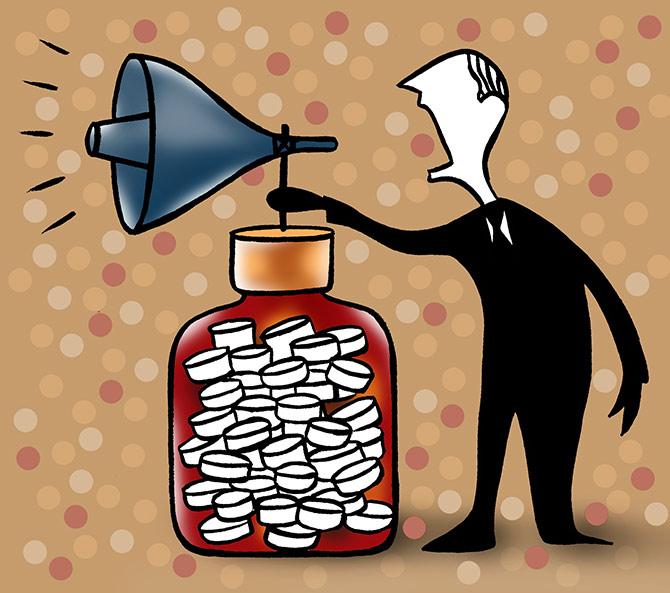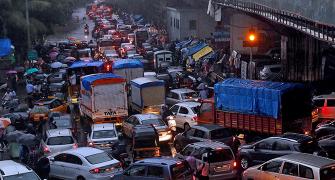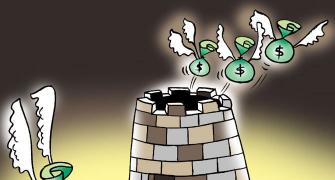The government has also started helping pharma companies that want raw materials to be airlifted from China.

Various government departments are keeping close tabs on the drug supply and pricing situation in India in the wake of global logistical crisis because of the coronavirus outbreak.
While the pharma pricing regulator is monitoring the prices of bulk drugs quoted by traders, and watching the import of these ingredients, the drug regulator is monitoring the inventory of raw materials and drugs in the country.
Meanwhile, the government has also started helping pharma companies that want raw materials to be airlifted from China.
Industry sources said the National Pharmaceutical Pricing Authority (NPPA) has sought data from importers on key active pharmaceutical ingredients (APIs) and their current prices.
"It is a good initiative by the government as many traders and importers are trying to hike prices of key APIs.
"The NPPA is maintaining a close watch on the prices of these imported APIs.
"This would help the domestic drug industry as prices of the finished products cannot go up," said an industry source who is actively involved in discussions with the government on the COVID-19 crisis.
The NPPA has asked the importers and manufacturers of 58 key APIs to submit data on these products to the regulator by March 11.
The data is related to availability, stock, volumes of manufacturing or import and current market prices of these products, said a government official.
The move is aimed at ensuring that there is no hoarding of critical raw materials, and that no trader or importer is able to hike prices illegitimately.
As such prices of key APIs have already risen, claims the industry.
Prices of paracetamol have gone up from Rs 250-300 per kilogram (kg) to nearly Rs 450-500 per kg in the past few weeks, said Mahendra Patel, owner of a mid-sized drug unit Lincoln Pharma in Gujarat.
He added that raw material inventory with smaller pharma manufacturers is not high unlike Big pharma.
"Smaller players would have another 15-20 days of inventory lying with them," he said.
Prices of some antibiotics, vitamins and anti-allergy medicine APIs too have shot up by 40-50 per cent.
The government has already put curbs on the export of 13 major APIs and formulations made from them earlier this month, as recommended by the Department of Pharmaceuticals (DoP).
The exporters’ lobby has sought relief citing that failure to supply one product as part of their export consignments may result in penalties and cancellation of the entire order.
The industry felt that the schedule of the export policy invoked to curb exports would practically result in stoppage of all exports from India for the moment.
Meanwhile, the office of the Drug Controller General of India (DGCI) has sought for data on raw material inventory in the country from the major manufacturers.
About 30 big drug firms account for nearly 65-70 per cent of the domestic pharmaceuticals production.
"We have submitted the data on the raw material stock we have to the DCGI as on the third week of February, and we have inventory of materials for another two months or so.
"We think that there would be no supply shortage in the country till June,” said an industry source.
In another significant move, drug firms have already begun bringing in raw materials from China through the aerial route as ports are congested.
"Companies like Mankind Pharma have begun air-lifting raw materials, while some like Lupin and Abbott are likely to follow," said an industry source who did not wish to be named.
The ministry of commerce along with the ministry of chemicals and fertilisers is coordinating with their Chinese counterparts to ensure that the necessary raw materials can be brought in through the aerial route.










